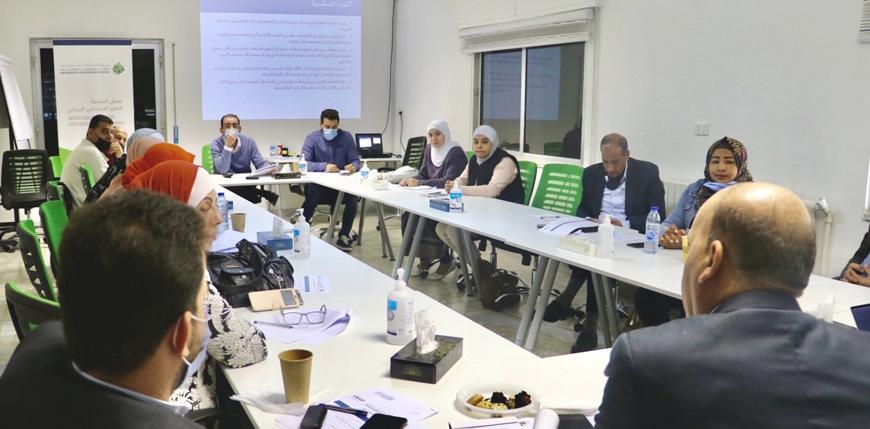You are here
Gov't lacks seriousness in implementing SDGs — researcher
By Ana V. Ibáñez Prieto - Jan 24,2018 - Last updated at Jan 25,2018
AMMAN — “The government lacks seriousness in the implementation of the Sustainable Development Goals (SDGs) as it deals with the agenda as a mere bureaucratic issue,” a working paper recently published by human rights researcher Sulaiman Sweis stated.
“Ever since the 1980s, we have been hearing about national strategies to solve issues such as poverty or unemployment, but, just a few months after they are published, it becomes clear that they remain on paper and never get to the ground,” the researcher told The Jordan Times in a recent interview, criticising the fact that “the same pattern appears to apply to the SDGs.”
The limitations faced by civil society organisations (CSOs) are the main challenges to the implementation of the SDGs, according to the study, which pointed out that “under the constraints and restrictions imposed on public freedoms — and specifically the freedom of organisation, assembly and expression — it is not surprising to find weakness in the role of CSOs.”
Sweis attributed this “weakness” to the legal framework regulating the work of the organisations, noting that “the laws in this matter involve many restrictions on the work that the CSOs are allowed to carry out, subjecting them to the custody of government agencies under security pretexts — sometimes without any justification or legal grounds.”
The researcher pointed out that the same argument was presented in a study carried out by Phenix Centre Director Ahmad Awad, which was signed by the European Union, which concluded that “the legal framework holds several restrictions against the activities of non-governmental organisations.”
“Jordan Society for Human Rights Studies experienced this issue when attempting to organise a human rights training for journalists, which was cancelled without prior notice or documentation explaining the reasons for such decision,” Sweis pointed out, criticising that “it seems like the government welcomes the presence of NGOs and CSOs in the Kingdom only as mere decor, or a tool to appear democratic in front of the international community.”
In this regard, the working paper stressed the need to submit petitions calling for the amendment of a substantial number of laws that “limit the public freedoms and the human rights” so that they become in line with the Jordanian Constitution and the various international human rights conventions.
Related Articles
AMMAN — Every year since the Arab Spring, the Information and Research Centre – King Hussein Foundation (IRCKHF) has carried out the Jordan
AMMAN — The Information and Research Centre — King Hussein Foundation (IRCKHF), on Thursday launched the 2021 Civil Society Organisation (CS
AMMAN – Civil society organisations (CSOs) representatives and government officials met on Thursday to reach an agreement on laws governing

















